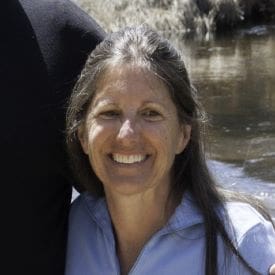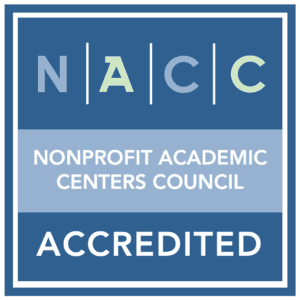Certificate
Social Enterprise, Innovation and Entrepreneurship
Ready to innovate? Learn to solve real problems and drive mission impact through social innovation. In this graduate certificate program in Social Enterprise, Innovation, and Entrepreneurship, you’ll address key social problems in your community or in the world by developing and launching a social enterprise idea. Understand the financial insights and language of funding, prototyping, scaling, marketing, and measuring impact of social enterprises and innovations.
Let us help you succeed.
*Indicates a required field.
Start classes January 6. Text an advisor at 303-900-0375.
Top-ranked, career-focused education in a flexible format.
At a Glance
Classes Begin
January 6
Term Length
10 Weeks
4 Course Certificate
Tuition
$13,344
6 Course Certificate
Tuition
$20,016

Top-Ranked University
U.S. News & World Report Rankings

Connect with an Advisor
Brian Cicero
Text Me at 303-900-0375
Email Me
Call Me
Schedule an Appointment
Free Application
University College is committed to educational access, and given the difficult circumstances currently impacting millions of people, we are waiving application fees.
Skills You’ll Learn
Develop impactful social enterprise ideas
Leverage innovation and design thinking to evaluate an idea’s social value and market potential
Test business and financial structure of social enterprise ideas applying social innovation tools and frameworks
Curriculum
Specialized Graduate Certificate in Certificate of Advanced Study in Social Enterprise, Innovation and Entrepreneurship requires completion of 16 credit hours (4 courses).
| 4 Concentration Courses |
Graduate Certificate in Certificate of Advanced Study in Social Enterprise, Innovation and Entrepreneurship requires completion of 24 credit hours (6 courses).
|
4
Concentration Courses
|
2
Elective Courses
|
Featured Instructors
Sample Schedule
Plan your schedule to complete your graduate certificate. Finish quickly in just six months or take up to two years (four course certificate) or three years for a six-course certificate.
| Year 1 | Q1 | Q2 | Q3 | Q4 |
|---|---|---|---|---|
| 4-Course Certificate Classes | 2 | 2 | 0 | 0 |
| 6-Course Certificate Classes | 3 | 3 | 0 | 0 |
| Year 1 | Q1 | Q2 | Q3 | Q4 |
|---|---|---|---|---|
| 4-Course Certificate Classes | 1 | 1 | 2 | 0 |
| 6-Course Certificate Classes | 2 | 2 | 2 | 0 |
| Year 1 | Q1 | Q2 | Q3 | Q4 |
|---|---|---|---|---|
| 4-Course Certificate Classes | 1 | 1 | 1 | 1 |
| 6-Course Certificate Classes | 1 | 2 | 2 | 1 |
Interested in a master’s degree?
Explore our Nonprofit Leadership with a concentration in Social Enterprise, Innovation and Entrepreneurship.
Take a Course Before You Apply
We know how important it is to get started when you’re ready and that’s why you can enroll in a course before you officially apply.
Career Outcomes
Predicted outcomes for graduates of Social Enterprise, Innovation and Entrepreneurship
According to the Johns Hopkins Center for Civil Society Studies, nonprofits are creating jobs three times faster than for-profits and is the third largest industry in the U.S.
The nonprofit industry is a diverse industry with employers based in large cities to rural areas. Nonprofit professionals can seek employment in healthcare, education, social services, arts and culture, and more.
Job Titles
Chief Innovator
Corporate Social Responsibility Director
Senior Data Analyst
Social Enterprise Consultant
Social Innovation Program Manager
Social Venture Advisor
Social and Community Service Managers Salary: National Average
$64,100
(U.S. Bureau of Labor Statistics)
Get Ahead with Career Services
One-on-one career coaching and mock interviews
Job database dedicated to DU students and alumni
Résumé and cover letter guidance
Hear from Our Students
Theme: Job Satisfaction
Nonprofit Fundraising During Tumultuous Times
These times are tumultuous, yet nonprofit organizations still need to move forward to make the world a better place. How are we navigating our organizations and fundraising programs through this time of uncertainty? Let’s come together and discuss how we all can survive and even thrive in these times. In this session, seasoned nonprofit professionals who are Nonprofit Leadership faculty, will address the challenges of creating a fundraising strategy in the age of COVID-19 and practical tips to make your fundraising program work in times of crisis.
Flexible Online Classes
We understand the demands of balancing work, friends and family, and school can be challenging. That's why at University College, you can complete your program entirely online. Our online learning platform makes it easy to work anywhere at any time.
Accreditation
Higher Learning Commission
University College programs maintain the highest level of accreditation offered by The Higher Learning Commission, one of the regional accrediting bodies recognized by the federal government. The University of Denver and all of its academic programs are regionally accredited by this commission, and regional accreditation is the highest standard for universities in the United States.
Colorado Nonprofit Association
The University of Denver's Nonprofit Leadership program through University College is proud to be a sponsor of the Colorado Nonprofit Association, a valued community partnership for more than a decade.
Take the Next Step













